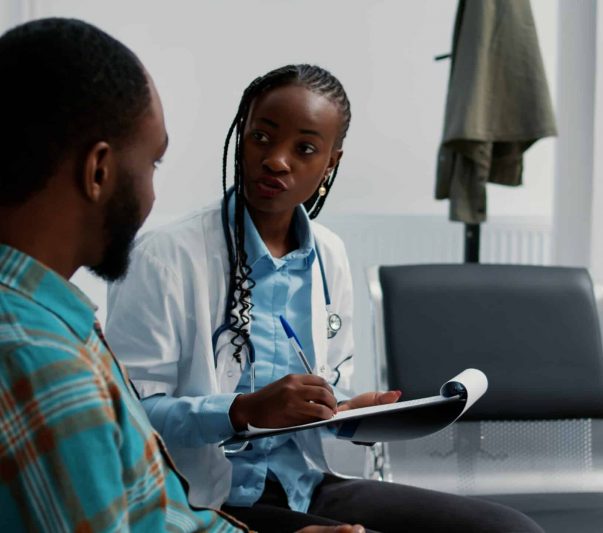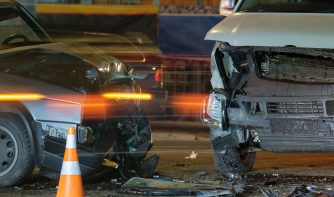If you’ve been in an accident, you might not think you’ve been hurt initially, but minor injuries can be unexpectedly severe—which is why seeking medical attention immediately after a minor car accident is crucial. The release of adrenaline during an intense situation can sometimes suppress or distract from pain. Still, many residents from the West who were under the mistaken impression that their injuries were just simple “bumps and bruises” were later shocked by the significant pain they felt due to delayed car accident symptoms.
Seeing a doctor after an accident means they can check for signs of serious conditions that require immediate treatment, such as certain types of closed-head injuries, which can be life-threatening, with the patient experiencing few symptoms—or none at all—at first.
Seemingly minor injuries may not always heal as quickly as expected. While most people eventually make a full recovery, some develop chronic pain from their injuries and need continued care. Seeking medical care right away allows you to establish a record of your injuries and initial treatment that health care providers can refer to later. No matter how minor the accident or your injuries, get medical attention immediately, and contact an experienced car accident lawyer today.
Key Takeaways
- Minor injuries after a car accident can worsen over time, so it’s important to see a doctor, even if you initially feel fine. The sooner you get checked, the better.
- Some injuries may not show symptoms immediately, like whiplash and neck or back injuries, traumatic brain injuries, or internal bleeding and injuries.
- The at-fault driver’s liability insurance typically reimburses medical bills in a settlement, not as you go. MedPay or health insurance usually pays upfront.
How Long After a Car Accident Should You See a Doctor?
The sooner you get checked, the better. Ideally, you should see a doctor within 24 to 72 hours of the accident for insurance purposes, as being seen will strengthen any claim.
If your accident was serious, immediately get medical care, especially if it’s an emergency. Sometimes people don’t think their injuries justify using an ambulance or don’t want to pay the bill for an ambulance trip. If the paramedics agree, you can still have a friend or family member drive you to the emergency room or an urgent care clinic, or make an appointment with your family doctor at a more convenient time.
In many circumstances, your doctor may diagnose you with a minor-to-moderate problem, like whiplash or a soft tissue injury. They may recommend rest, over-the-counter medication, and ice and tell you the symptoms should subside in a few days to weeks—this is often the case. However, if your symptoms persist, don’t hesitate to return to your doctor or seek a second opinion.
If you don’t have any noticeable symptoms or effects from the accident, you can get medical care through your primary care physician or urgent care. Always seek emergency care if your symptoms suddenly appear and worsen quickly.
Car accidents can cause life-altering injuries and leave you with significant financial burdens. If you’ve been hurt due to someone else’s negligence, you may have the right to compensation. Our car accident lawyers are here to help you get justice.
Hidden Injuries That Minor Car Accidents Can Cause
Some injuries can surface days or weeks later and won’t always be visible on initial imaging, like whiplash, neck or back injuries, traumatic brain injuries (TBI), or internal bleeding.
Injuries like whiplash can be caused by sudden stops that occur in many accidents. Inertia makes your body move forward even when the car has halted abruptly. While seatbelts prevent your body from going through the windshield, they don’t stop your head from snapping forward and backward, causing muscle and ligament tears in the neck. Common symptoms include pain and stiffness, but some may also experience headaches, ringing, blurred vision, or arm tingling.
A traumatic brain injury can occur in various ways. A concussion is a mild TBI that usually heals with time and rest, while more severe TBIs may need medication or surgery. Some can cause permanent damage, affecting different body areas depending on the injury itself. Cognitive issues like memory, language, decision-making and motor problems—such as trouble walking or balance challenges—can occur.
Car crashes can also result in internal injuries, such as internal bleeding or bruising, as well as lacerations to the spleen, liver, or other organs. Sometimes, milder internal injuries only require a few days of observation at the hospital, but more advanced injuries may necessitate surgery to stop the bleeding or repair damage.
Not getting medical attention after an accident can be incredibly risky, as hidden symptoms can become dangerous if ignored.
Symptoms That Require Immediate Medical Attention
Seek medical attention immediately if you’re experiencing any of these symptoms:
- Loss of consciousness
- Confusion
- Severe headache
- Vision changes
- Numbness and tingling in your hands and feet
- Abdominal pain
- Difficulty breathing
Call 911 for life-threatening emergencies, such as severe chest pain, breathing difficulties, or loss of consciousness. Visit urgent care for non-life-threatening injuries, like sprains or strains, that need immediate attention but don’t require a hospital setting. It’s better to exercise caution, so if you are unsure what your symptoms might mean, head to the emergency room or call the emergency line for more information and guidance on what to do next.
How Seeing a Doctor Protects Your Legal Rights
Seeing a doctor isn’t just about your health; it’s also about protecting your claim. Getting immediate medical attention helps establish a record of your injuries, which is essential for future care and insurance claims, and protects your legal rights by creating important documentation of your condition and treatment. This health record provides key evidence for legal cases and confirms you received proper care.
Aside from documenting your injuries, your doctor’s visit will help determine if there are any serious issues. While neck pain after an accident is often due to whiplash, there are times when a patient has a potentially severe neck fracture or another problem. If left untreated, a neck fracture can lead to spinal cord damage and other long-term issues, like paralysis.
Delaying can result in the insurance company claiming your injury isn’t related to the accident or caused by a pre-existing condition before the accident. Insurers in Colorado, New Mexico and Wyoming frequently question gaps between a crash and the first treatment visit; early care helps close that gap.
Who's Responsible For Paying Medical Bills After a Minor Car Accident?
Facing injuries after an accident can be difficult, especially if you’re unable to immediately return to work and are facing unexpected medical bills. Thankfully, the at-fault driver’s liability insurance should cover medical bills related to the accident.
Because of this, the initial out-of-pocket expenses you face should be reimbursed. Be sure to maintain records of all medical appointments and bills you receive. In Colorado, optional MedPay does not cover wage loss, but MedPay coverage will cover any medical expenses your health insurance doesn’t, regardless of fault. UM/UIM or short-term disability may address income loss.
According to Wyoming and Colorado laws, faults in accidents can be shared between drivers, making determining fault more complex. Under modified comparative fault statutes, the driver who is mostly at fault will pay damages to the driver with less fault, and whatever percentage of responsibility is assigned to the injured party is removed from the damages they recover.
If you have health insurance, it may initially cover some or all of your medical bills, and the at-fault driver’s liability insurer usually pays via settlement or judgment. Bring bills to your health insurance or MedPay first, then they are typically reimbursed from any recovery.
For instance, getting an X-ray to ensure you don’t have a broken bone after a car crash is a valid medical expense. If the insurance company adjuster disagrees, contact Olson Personal Injury Lawyers. We’ll happily provide the documentation they need to demonstrate that your medical bills were necessary.
How to Get Help with Your Car Accident in Colorado or Wyoming
If you or a loved one has suffered a car accident due to another driver’s negligence, you could be dealing with a number of problems. You might have medical bills, a loss of income if you can’t work, car repair bills, and creditors badgering you to make a payment. At the same time, you could be in physical pain, or you might be prescribed strong pain medication that makes it hard to think clearly. You might also experience a downturn in mental health, such as symptoms of anxiety, depression, or PTSD stemming from the car crash.
When these things happen, it can be hard to know where to turn, but you need help seeking compensation for your losses. Contact us for a free consultation about your options. We’ll review your case, answer any questions you have, and help you calculate what your claim is worth. If we take your case, you won’t owe us anything until we win or settle it for you. Call us today at (303) 381-2234.
Attorney Sean Olson founded Olson Personal Injury Lawyers to help people who were injured in car accidents or other situations of negligence. He personally talks to every new client, learns about their life and goals, and works to help find the best solutions for pursuing compensation.






